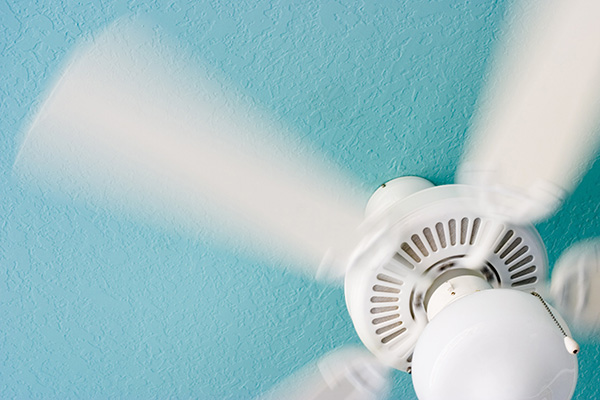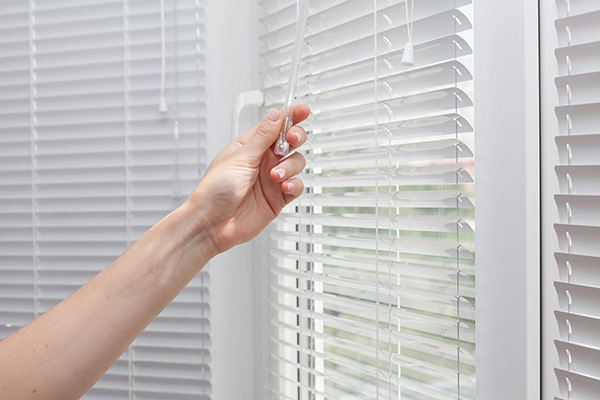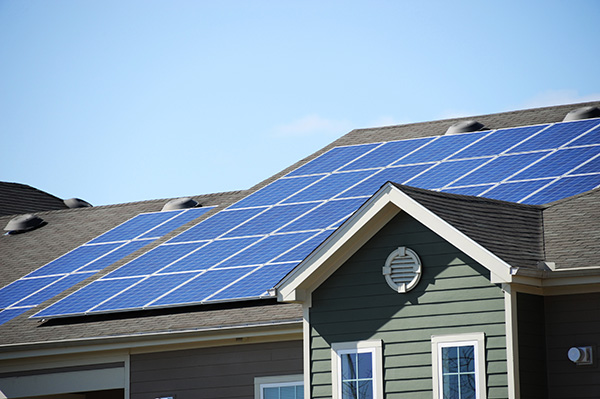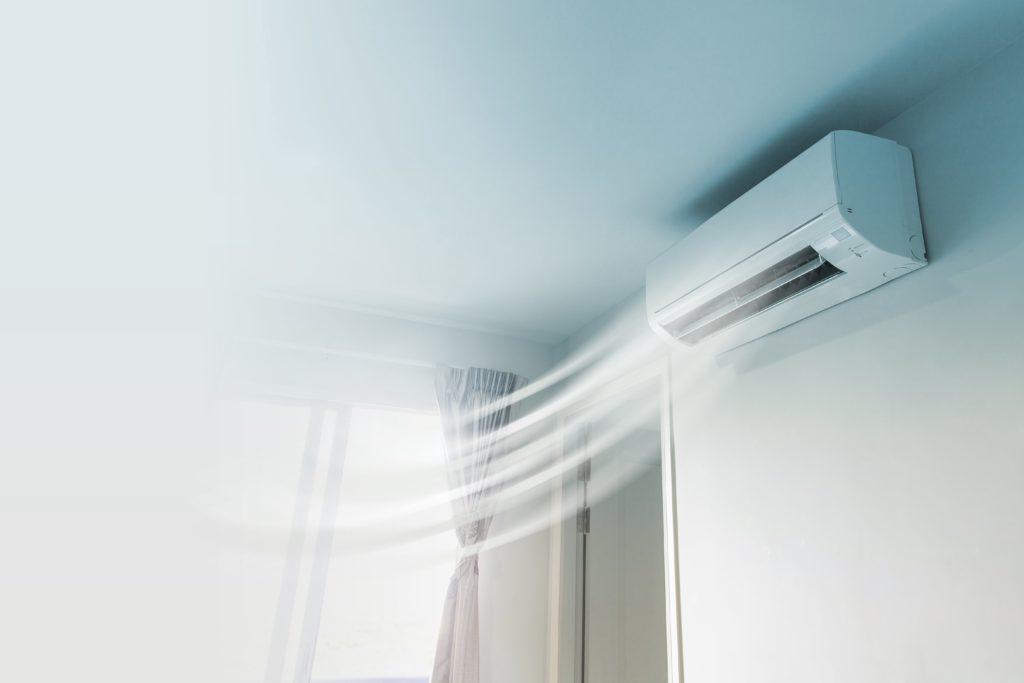When Shakespeare asked the question, “Shall I compare thee to a summer’s day?” he was immersed in love and the beauty of summer, surely unconcerned with saving money on cooling costs.
For the rest of us, however, the summer months arrive with their relentless heat, and we crank the AC into overdrive to feel some kind of relief. High air conditioning bills are a mere consequence of summer that we have to endure.
However, we don’t have to suffer this fate. With changes, some big and some small, it’s possible to reduce cooling costs; and, as an added bonus, some of these changes will help reduce winter heating costs as well.
Things you can do for immediate results:
1. Use a ceiling fan or other fan: Fans will help circulate the cool air, making it feel a bit cooler.

2. Install a programmable thermostat: A programmable thermostat can turn the system off or down when you’re not home so you don’t have to remember to do it. You can set it for a higher temperature at night when you’re sleeping. Installing a programmable thermostat can shave 15% off your cooling bill, and it’ll help in the winter too.
3. Set the temperature to 78 degrees: It’s the optimum energy-saving temperature. For every degree that you raise your thermostat, you’ll save approximately 3% on your bill.
4. Turn off the lights: Using lights during the day can be more of a habit than a necessity.
5. Switch your light bulbs: Incandescent lights can give off a lot of heat, and they use more energy. Switching to CFL (Compact Fluorescent Lamp) will help keep things cool, and they’re much more efficient too.
6. Shut off the AC at night: Unless it’s too uncomfortable, try not to use air conditioning at night. Open the windows and let in the cool air. If you open the windows halfway so there’s an opening at the top and at the bottom, warmer air will rise and go out the top while cool air is drawn in through the bottom.
7. Change your filters: Dirty filters cause your AC unit to work overtime, which means it’s not working efficiently.
8. Have yearly maintenance done: If you have central air, it’s important to have it serviced yearly. It’ll help it run more efficiently, and you may be able to catch a minor problem with the system before it becomes a major one.
9. Be patient: When you come home and the house is hot, don’t blast the AC at its coldest setting. The house won’t cool any faster and it just causes your AC unit to work harder and less efficiently, and it shortens its lifespan.
10. Seal your windows and doors: If you have drafty windows and doors in the winter, they’re letting your cool air out in the summer.
11. Don’t use major appliances: Your television, computer, stove, dishwasher, and clothes dryer give off a lot of heat. Try to use them less frequently, especially on hotter days. Food is better on the grill anyway!
12. Close the blinds: Keeping blinds and shades drawn during the day will help keep out the heat.

13. Install screens on your windows: Obviously, screens allow you to keep your windows open and enjoy the fresh air without the worry about being carried off in the night by insects. However, solar screens (mesh-like) can block the sun’s rays and save you 15% on cooling costs.
14. Turn the AC’s fan down on humid days: Having the fan on low on humid days will allow the unit to remove more moisture from the air, which will make the house feel cooler.
15. Check for leaks: If you have central air, check the ductwork for leaks and seal up any you find.
16. Use tinted film: If you don’t like the idea of keeping the shades drawn during the day, apply window tint. It’s inexpensive and easy to install.
17. Make your own AC unit: All you need is a bucket, a cooler, a fan, and some ice and you’ve got yourself a surprisingly effective air conditioner! Use these instructions.
Things you can do for long-term cost savings:
18. Replace your windows: If you have old windows, they’re probably not as energy-efficient as windows of today. Window replacement is a costly fix, but it’ll pay for itself in a few years. You may even be able to find rebates and tax savings to help offset the costs.
19. Insulate your walls and attic: If you have an older house, it may not be insulated as well as it should be.
20. Install solar panels: You can buy or rent them and may be able to find rebates and tax savings for these as well.

21. Replace your AC unit: Older systems use a lot more energy than newer models. A new unit will pay for itself in savings quickly, usually within 5 years.
22. Plant some trees: Trees provide shade from the sun; if placed strategically near your home, they can save you 35% on your cooling costs. Arbors and trellises can help too.
For many, air conditioning costs are a major expense of the summer. With a few minor changes, or a few major ones, cooling costs can become a more reasonable expense and you’ll have more money to spend enjoying the sunny summer months.





